Quartz
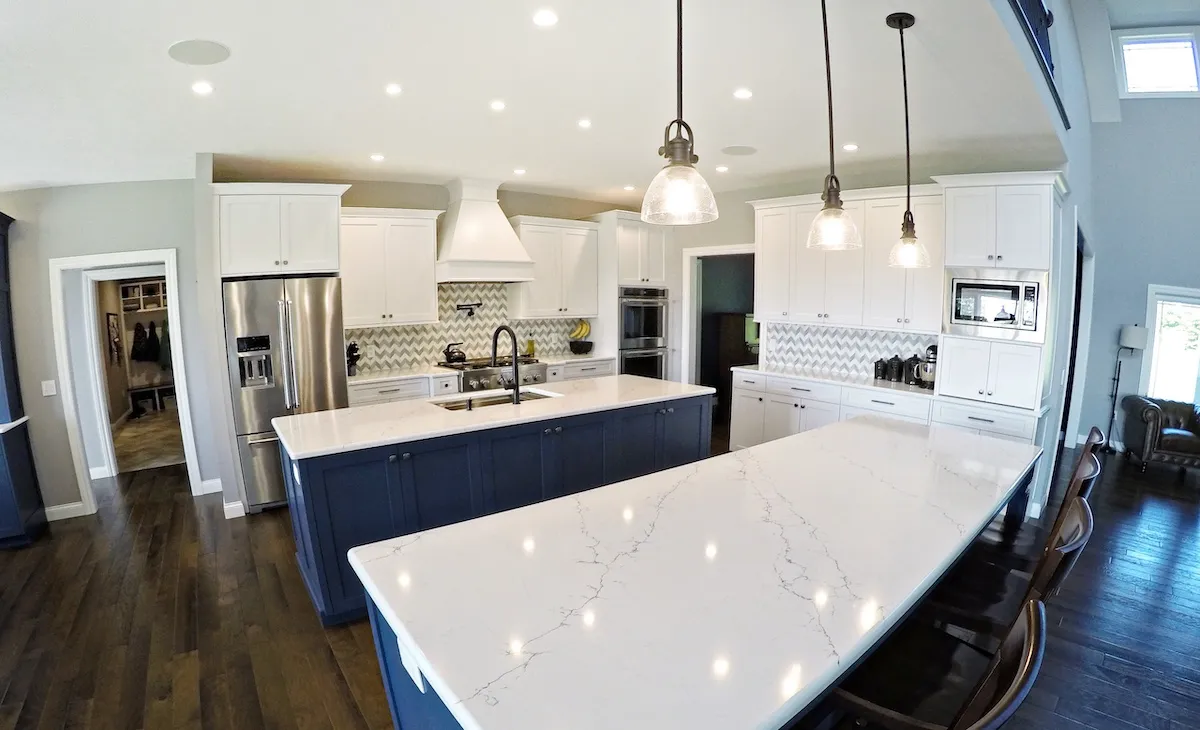
Why Quartz?
Quartz is an engineered stone made from natural quartz crystals combined with resins and pigments to create a durable, non-porous surface. Unlike natural stones, quartz does not require sealing and offers a uniform appearance with a wide variety of colors and patterns. It is a top choice for homeowners who want a stylish, low-maintenance countertop option.
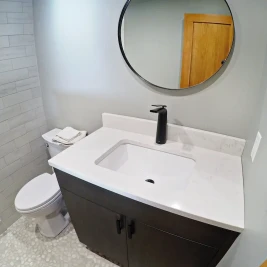
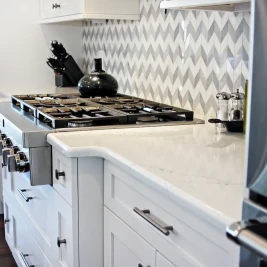
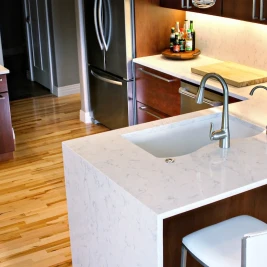
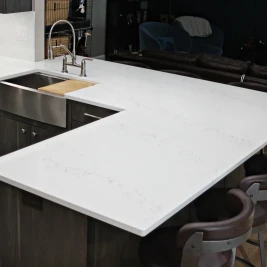
Benefits of Quartz
Extremely Durable: Resistant to scratches, chips, and everyday wear.
Non-Porous Surface: Doesn’t require sealing and resists bacteria and mold growth.
Stain Resistant: Repels wine, coffee, and other common household spills.
Wide Variety of Colors and Patterns: Available in solid colors, marble-look designs, and more.
Low Maintenance: Easy to clean with just soap and water.
Care Instructions
To keep your quartz countertops looking their best:
Use Mild Soap and Water: No need for special cleaners or sealants.
Avoid Harsh Chemicals: Acidic or abrasive cleaners can break down the resin over time.
Use Trivets for Hot Pans: Quartz is heat-resistant, but excessive heat can damage the resin.
Cutting Boards Recommended: While scratch-resistant, quartz can still be damaged by sharp knives.
Results
Dekton delivers a sophisticated, high-performance surface that works for countertops, flooring, and even exterior applications. Its ultra-modern aesthetic and resilience make it a top choice for contemporary kitchens and outdoor living areas.
Other Reasons to Choose Quartz
Consistent Patterns and Colors: Unlike natural stones, quartz offers uniformity in design.
Antimicrobial Properties: Naturally resistant to bacteria and mold.
Versatile Applications: Perfect for countertops, backsplashes, and even shower walls.
FAQs About Quartz
- Can quartz be used outdoors? Standard quartz is not UV-resistant and can fade in direct sunlight. However, some manufacturers offer outdoor-rated quartz options.
- Is quartz more expensive than granite? Prices vary, but quartz is often comparable to mid-to-high-end granite. However, it requires less maintenance over time.
- Does quartz need sealing? No! Unlike natural stones, quartz is non-porous and does not require sealing.